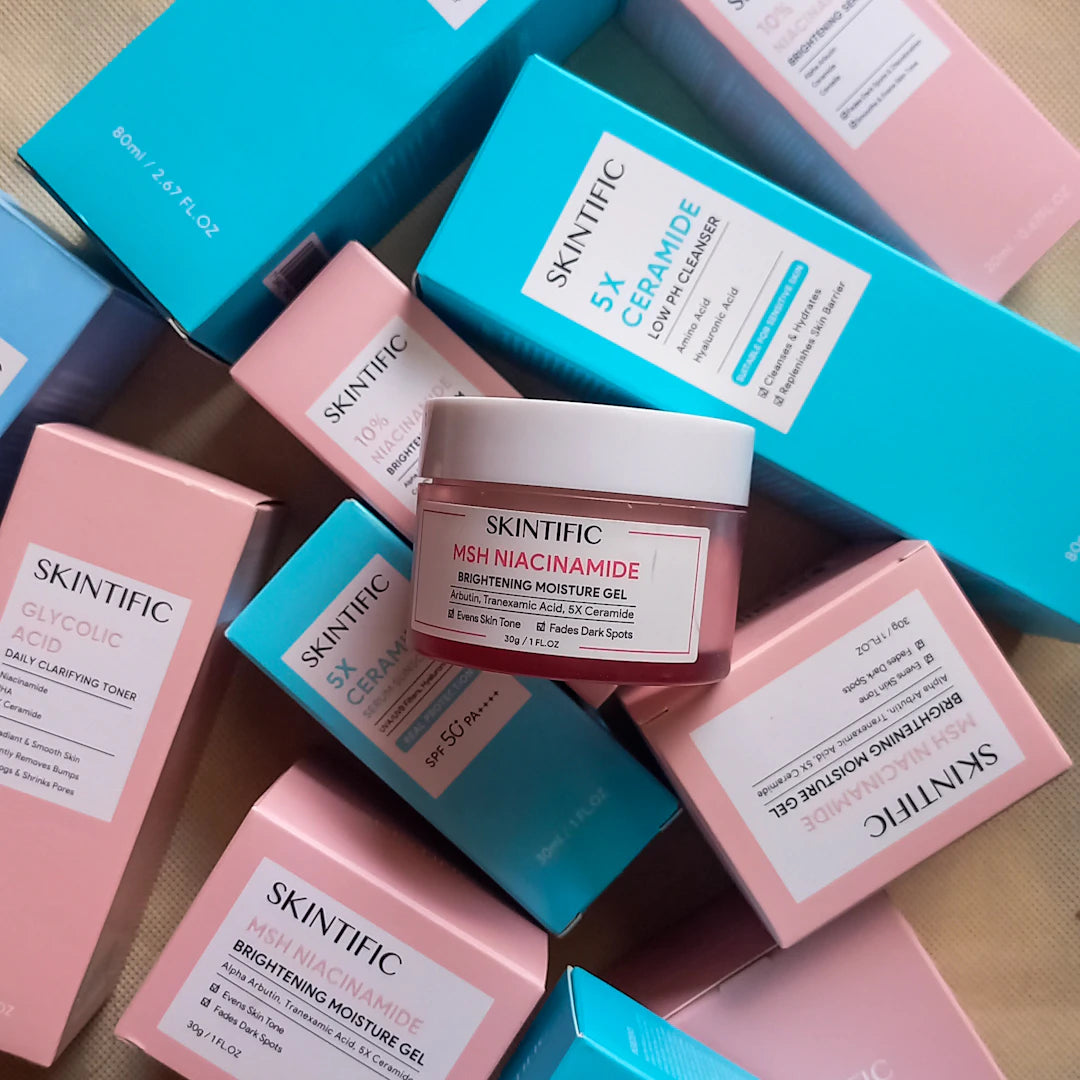Natural vs. Synthetic Ingredients in Skincare

Frequently Asked Questions
1. What are natural skincare ingredients?
2. What are the benefits of using natural skincare ingredients?
3. What are synthetic skincare ingredients?
4. What advantages do synthetic ingredients offer in skincare?
5. How can I choose between natural and synthetic skincare products?
Choosing the right skincare products can often feel overwhelming, especially when confronted with the debate between natural and synthetic ingredients. With so many options available, understanding the difference between these two categories is essential for creating an effective skin care routine. This article delves into the nuances of natural and synthetic skincare ingredients, helping you make informed choices for your skin health.
The Rise of Natural Ingredients
Natural ingredients have gained immense popularity in recent years. With an increasing number of consumers leaning towards a healthier lifestyle, skincare brands have also started to pivot their formulations. So, what are natural ingredients, and why are they lauded by many? Here, we explore some key aspects of natural ingredients in skincare.
What Are Natural Ingredients?
Natural ingredients are derived from plants, minerals, and other substances found in nature. These ingredients are typically free from artificial chemicals and synthetic compounds. This appeal is not just co-dependent on trends; many individuals believe that products made from natural ingredients are better for their skin and overall health.
Benefits of Natural Ingredients
- Gentle on the skin: Natural ingredients often have fewer side effects and are generally gentler, making them suitable for sensitive skin.
- Rich in antioxidants: Many natural ingredients, like botanical extracts, are packed with antioxidants that can help protect the skin from free radicals.
- Environmentally friendly: Many natural ingredients come from sustainable sources, which can appeal to eco-conscious consumers.
The Allure of Synthetic Ingredients
On the flip side, synthetic ingredients have their own set of benefits that often make them an attractive choice for many skincare enthusiasts. Understanding what synthetic ingredients are and how they can play a role in skincare is crucial for your skin care routine.
What Are Synthetic Ingredients?
Synthetic ingredients are man-made compounds created in labs. They can be used in skincare formulations for various purposes, including preservation, fragrance enhancement, and improving texture. Synthetic components can sometimes mimic the properties of natural compounds, offering an array of benefits.
Advantages of Synthetic Ingredients
- Consistency and reliability: Synthetic ingredients can provide more stable and uniform results compared to their natural counterparts, ensuring the product works effectively every time.
- Cost-effective: Generally, synthetic ingredients can be produced at a lower cost, which can often make skincare products more affordable for consumers.
- Targeted actions: Many synthetic ingredients have been designed for specific actions, such as anti-aging or fragrance, allowing manufacturers to create powerful formulations.
Nutritional Content: Organic vs. Synthetics
The ingredients' nutritional value is a significant factor when examining the pros and cons of natural and synthetic substances. Understanding how each type contributes to skin health is critical for making choices that align with your skin’s needs.
Natural Ingredients
Many natural ingredients contain essential nutrients, vitamins, and minerals that can positively affect your skin. For instance, oils derived from plants, such as avocado or jojoba oil, are laden with fatty acids and vitamins A, D, and E, promoting skin elasticity and hydration. These components can work synergistically to nourish and protect your skin.
Synthetic Ingredients
While synthetic ingredients might lack the broad spectrum of nutrients available in natural products, formulations often glean the positive aspects of naturally occurring ingredients. For example, a synthetic version of hyaluronic acid can provide intense hydration efficiency that may sometimes exceed natural alternatives. Thus, while natural might feel safer, synthetic elements can deliver potent benefits that shouldn’t be ignored.
Understanding Labeling and Marketing
The skincare market is flooded with options, and many products tout claims of being "natural" or "organic." Thus, deciphering labels is crucial for consumers aiming to make the right choices. Here are some factors to consider:
What’s in a Name?
One of the most common pitfalls is assuming that a product labeled as "natural" is devoid of synthetic components. In the United States, skincare products can be marketed as natural even if they contain synthetic ingredients. Thus, always review the ingredient list for a more accurate understanding.
Certifications and Standards
Look for certifications such as USDA Organic or EcoCert, which can provide more assurance regarding the natural integrity of the ingredients. Products that meet these standards often prioritize consumer health and environmental sustainability.
Common Ingredients: Natural vs. Synthetic
To further understand the differences between natural and synthetic ingredients, let’s compare common components found in many skincare formulations today:
Moisturizers
- Natural: Ingredients like shea butter and coconut oil offer deep hydration without the potential side effects of harsh chemicals.
- Synthetic: Ingredients such as propylene glycol are often included for their moisture-binding properties but without the nutty or tropical aromas of natural alternatives.
Exfoliators
- Natural: Sugar and salt scrubs utilize granular textures derived from natural components, providing effective exfoliation.
- Synthetic: Salicylic acid is often used in chemical exfoliants, targeting acne and helping to improve skin texture with a more refined approach.
Choosing What’s Right for You
Ultimately, the decision between natural and synthetic skincare relies on individual preferences, skin type, and concerns. For those with sensitive skin, opting for natural ingredients may alleviate reactions. In contrast, individuals interested in advanced skincare solutions might achieve better results with synthetic formulations.
Skin Type Considerations
Your skin type plays a pivotal role in how products are absorbed and their effectiveness. Understanding your skin type is essential for creating an effective skin care routine:
- Oily Skin: Lightweight, oil-free formulations may benefit from synthetic ingredients that control oil and shine.
- Dry Skin: Products rich in natural oils and emollients can be advantageous for hydration.
- Sensitive Skin: Prioritize gentle natural ingredients to reduce the risk of irritation.
Making an Informed Choice
The skincare industry is diverse, featuring various brands promoting their products with different tags. It’s vital to fully educate yourself about the formulation of any product you’re considering. Understanding both the benefits and potential drawbacks of natural and synthetic ingredients will empower you to navigate your choices based on your unique skin needs.
Trial and Error
One effective way to determine which ingredients work best for your skin is through trial and error. Pay attention to how your skin reacts to different products and adjust your skin care routine accordingly. This personalized approach can help identify the right balance of natural and synthetic ingredients that suit your needs.
Incorporating in Routine: Blending the Best of Both Worlds
Rather than adhering strictly to one category, consider integrating both natural and synthetic ingredients into your skincare routine. This blend allows for leveraging the unique benefits each type offers while also providing versatility in managing different skin concerns.
Your Unique Skincare Journey
Your skincare journey is as unique as you are. The balance between natural and synthetic ingredients holds the potential to benefit your skin health significantly. By carefully considering your skin type, preferences, and specific concerns, you can design a highly effective regimen that truly meets your skin’s needs. Ultimately, it’s not about choosing sides; it’s about finding the right ingredients that work for you! Embark on your personalized skincare evolution today!


